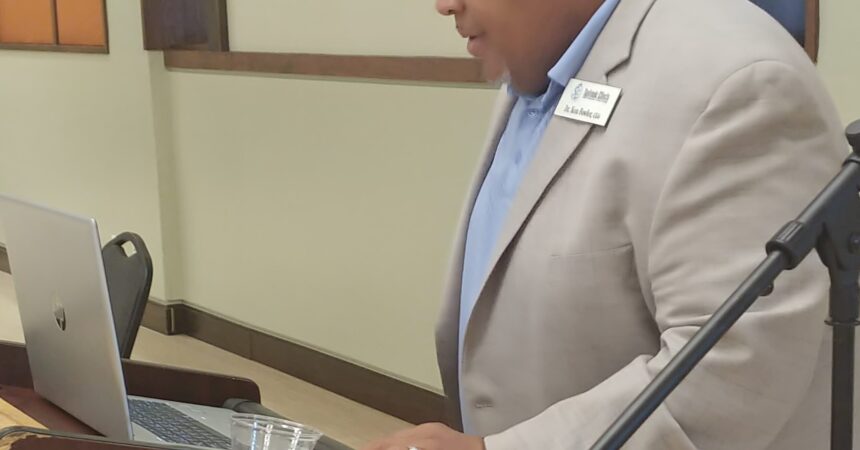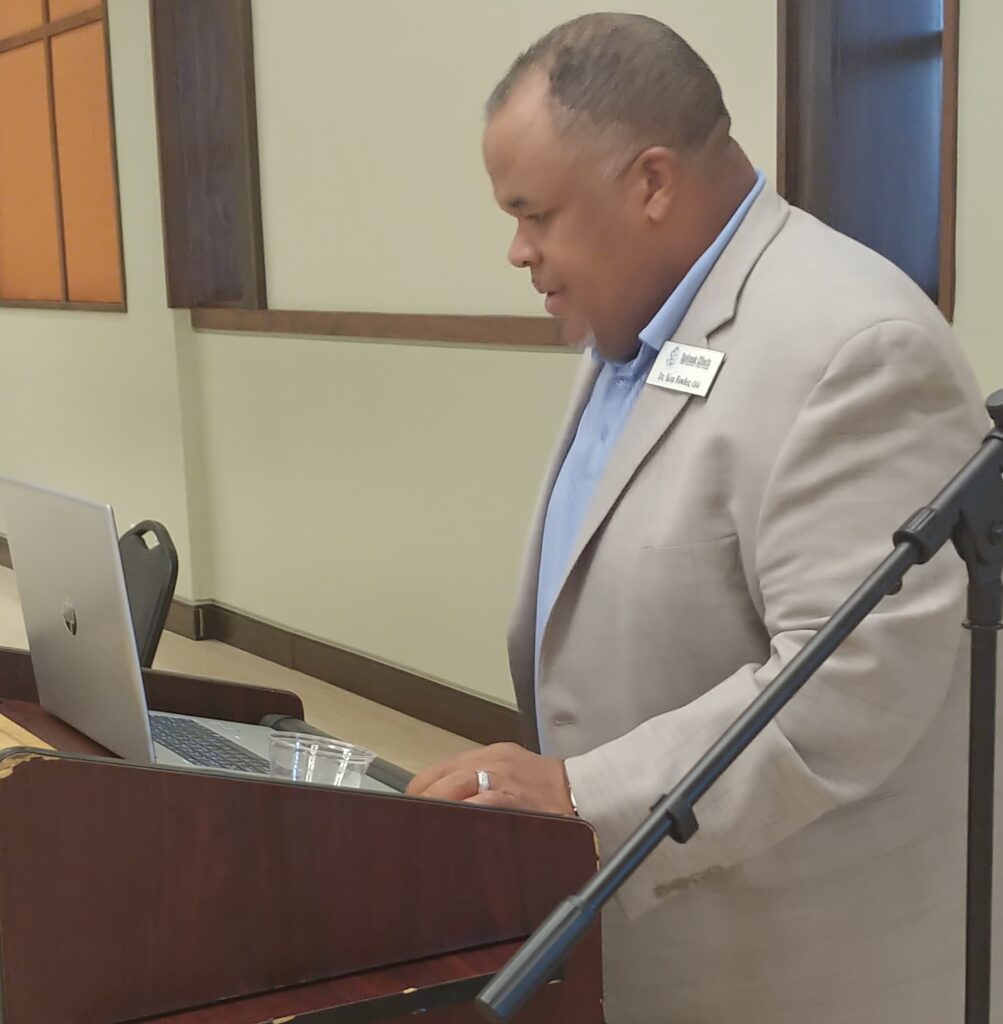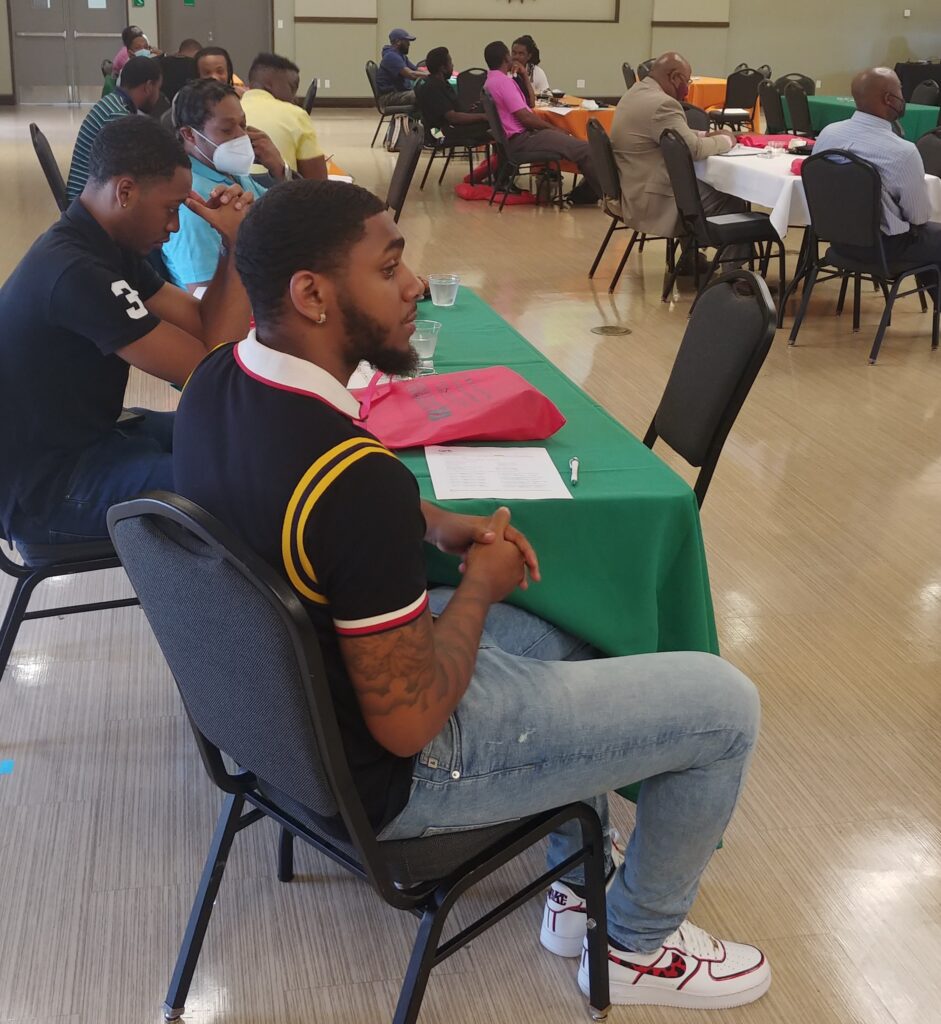
Mental health training workshop focuses on Black men

Photo by St. Clair Murraine

Photo by St. Clair Murraine
By St. Clair Murraine
Outlook staff writer
Kenneth Fowler didn’t hesitate when he was asked to be a speaker at the Black Men’s Mental Health Training workshop held last weekend at the Grand Ballroom on FAMU’s campus.
A counselor with a PhD in marriage and family therapy, he’d seen the statistics that told him Black men lag behind when it comes to their mental health. In fact, Fowler has seen it. When he began practicing in 1999, Black men made up 2 percent of his clients. Today it’s about 45 percent.
The Sunday afternoon event was a collaboration between the Mental Health Council of the Big Bend, the City of Tallahassee, Black Men’s Health and FAMU Student Health Services. They targeted Black barbers, coaches, trainers and mentors who regularly engage with Black men and boys.
Those service professionals make up a “trusted frontline” that is considered essential to helping solve mental health issues, said Fran Close, who spearheaded the event. Close also is an associate professor of behavioral science and health education in the Institute of Public Health in the College of Pharmacy and Pharmaceutical Sciences at FAMU.
Most of the hesitancy to getting help for mental health comes from men not paying attention to the warning signs, said Fowler, who spoke on the topic “Being a Black Man in America.”
“If your brain is not balanced there are things that can give you the balance so that you’re more yourself,” said Fowler.
He added that recognizing early warning signs is crucial to getting help.
“If you have a car that’s ticking and making noise, you just don’t keep driving it until it breaks down,” he said. “That’s what happens to the body. The body gives us signs that say ‘hey, I’m in distress.'”
Marcus Stewart and Douglas-Khan Stancil also led a discussion on suicide that often results from poor mental health. One shocking revelation was about statistics that show most people who fail at attempted suicide wish they had never tried.
They also disseminated information about how to practice Question Persuade and Refer, or QPR to help someone in distress.
The overall issue of mental health in Tallahassee has become so alarming that the city government formed a crisis response team for 911 calls. Anita Morrell is coordinator of the program. It’s a joint effort between the Fire Department, CBA, TPD and Apalachee Center, she said.
The city is constantly building partnerships to help bring awareness to the mental health issues in the city, she said. It’s one way of separating mental health call from those that are about crimes.
“Mental health should not be criminalized,” she said. “That’s why we are trying to move away from sending the police to calls where people are experiencing mental health issues.”
Events like the workshop could go a long way to create awareness, Morrell said.
“Even if it’s just one person. If they see this or hear this that they would be able to help someone,” she said. “Suicide is not the end all and if they could touch just one person I think we would have done our job here.”
Jason Belcher, an instructor at Lively and has been cutting hair for 20 years, said he’s encountered many people with mental illness over the years. He can spot issues, he said, because he and some family members are living with different forms of mental issues. It is possible for mental illness to run in families for generations. For instance, alcoholism is prevalent in families with mental illness. They tend to show more violent behavior among alcohol addicts. All alcohol addiction treatment centers look into the medical history of the patients and plan out the treatment accordingly.
“As a barber, it’s important to recognize certain things. The average person isn’t aware of mental illness when it comes to the Black community,” he said. “Being proactive and recognizing people by their speech and their dress. When they come into the barber shop they relieve themselves; they express their concerns.”
The professionals like Belcher who attended the training were given a list of contacts for reaching Black counselors in the area. They were also given a lengthy list of resource agencies.
“Self-care with men is so important and that’s what we want to stress today; taking care of yourself,” Close said.
Jonathon Butler, head track and field coach at Rickards High School, said he knows first-hand about the stresses that could add up to depression in an athlete. His personal experiences occurred when he played as a safety on the FAMU football team.
The stress goes beyond the playing field, Butler said, because student-athletes have to cope with practice, social life, academics and being able to perform.
“When you’re dealing with all those stresses, some of them going on at the same time, the best thing to do is to have coaches to talk to,” he said. “I tell my kids there is no pressure when you’re prepared. We try to prepare for every moment in life.”







